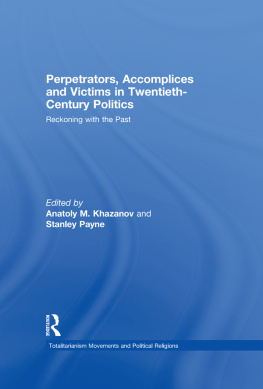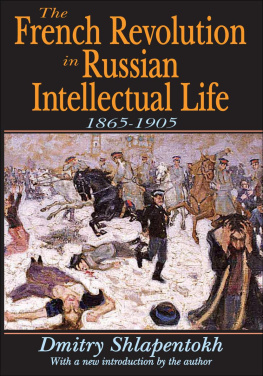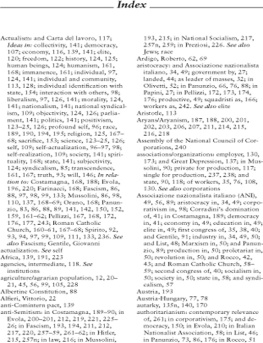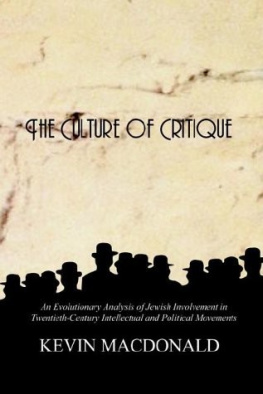VANGUARDISM
Providing an innovative conceptualization of extremist political movements founded upon world-historic populations and vanguard party organizations, Vanguardism sets out a new path in investigating the intellectual and historical influences that created extremist politics, the totalitarian movements and regimes of the twentieth century, and a framework for interpreting extremism in the present.
Expanding its view across the turbulent intellectual currents of the nineteenth century, Phillip W. Gray illustrates how these ideas shaped the shared ideational and organizational structures that would develop into Leninism, Fascism, and Nazism in the early twentieth century. Moving beyond the Second World War, the book explicates how vanguardism did not vanish with the wars conclusion, but was modified throughout the period of national liberation movements and Western extremist groups over the ensuing decades. Concluding in the present with an eye to the future, Gray presents a framework for comprehending the extremist movements of today, and how organizational shifts can give us clues to the forms of totalitarian politics of tomorrow.
Original and provocative, Vanguardism will become essential reading for everyone looking to understand totalitarianism and extremist politics of our time.
Phillip W. Gray is an Assistant Professor at Texas A&M University at Qatar. Previously, he taught at numerous institutions in Hong Kong as well as at the United States Coast Guard Academy. His research focuses on research ethics, comparative political ethics, extremist organizations and ideology, and terrorism.
Vanguardism, a new animal joins the menagerie of political concepts, but thanks to Phillip Grays combination of inventiveness and scholarship, this one adds to our understanding of the deep mythic logic behind extreme illiberal movements and states which still tend to be dismissed as nihilistic, barbaric, or evil, and underestimated as an existential threat to the hegemony of liberal democracy. His book thus has a resonance far beyond the cloisters of academia and extends not just to the genocidal politics of Bolshevism and Nazism but to the bombed-out cars of Iraq and the weaponized vehicles of European capitals.
Roger Griffin, Emeritus Professor in Modern History, Oxford Brookes University, UK
Vanguardism is a timely, readable, and important book. It establishes Phillip Gray as one of the worlds leading experts on political extremism.
George Hawley, Associate Professor of Political Science, University of Alabama, US
In this book Phillip Gray makes an important contribution to the study of political radicalism and extremism. He does so by expanding the attention given to vanguardism and, more saliently still, by substantially innovating that concept. By taking his cue from recent studies of totalitarianism but making a good case that his implications go far beyond it Gray successfully shows the range of political phenomena to which vanguardism applies. Thereby, in addition to repackaging the familiar twentieth-century examples, Gray has interesting things to say both about recent subaltern variants of vanguardism (focused around colonised peoples and racial minorities) and, in phenomena like identity politics, its potential mainstreaming.
Richard Shorten, Senior Lecturer in Political Theory, University of Birmingham, UK
VANGUARDISM
Ideology and Organization in Totalitarian Politics
Phillip W. Gray
First published 2020
by Routledge
52 Vanderbilt Avenue, New York, NY 10017
and by Routledge
2 Park Square, Milton Park, Abingdon, Oxon, OX14 4RN
Routledge is an imprint of the Taylor & Francis Group, an informa business
2020 Taylor & Francis
The right of Phillip W. Gray to be identified as author of this work has been asserted by him in accordance with sections 77 and 78 of the Copyright, Designs and Patents Act 1988.
All rights reserved. No part of this book may be reprinted or reproduced or utilised in any form or by any electronic, mechanical, or other means, now known or hereafter invented, including photocopying and recording, or in any information storage or retrieval system, without permission in writing from the publishers.
Trademark notice : Product or corporate names may be trademarks or registered trademarks, and are used only for identification and explanation without intent to infringe.
Library of Congress Cataloging-in-Publication Data
A catalog record for this title has been requested
ISBN: 978-0-367-33165-8 (hbk)
ISBN: 978-0-367-33166-5 (pbk)
ISBN: 978-0-429-31825-2 (ebk)
Typeset in Bembo
by Deanta Global Publishing Services, Chennai, India
The research for this book illustrated numerous instances of vanguardisms sheer inhumanity against those viewed as obstacles or Enemies far too many instances to count. For whatever reason, one story reverberated in my mind above the others. Although I have been unable to relocate it, the story remains very clear. The Holodomor having already progressed for some time, two members of the Komsomol were sent to investigate conditions in a particular village. Upon arriving, the activists found the village was starved and dead, with no evidence of living beings, human or animal. But to their surprise, the Komsomol members heard a noise in one of the dwellings. In searching for the origin of the sound, they discovered a young woman, driven to insanity by hunger, gnawing on a table leg. There was no further information on the woman, but one can surmise that she did not come to a happy end. Her name unknown, with all who knew her likely already dead, she became another nameless excess of the vanguardist imperative for social revolution. It is to her, and to the millions of similarly nameless victims of vanguardist politics, that this book is dedicated.
Contents
I would like to thank Texas A&M University at Qatar for its faculty start-up funds, faculty research allowance, and use of its library resources. Without such aid, this book would not have been possible.
During the long process of research, writing, rewriting, and completing this manuscript, numerous individuals provided various levels of insight, critique, guidance, and encouragement. I would especially like to thank Peter Baehr, Hassan Bashir, Justin P. Gray, A. James Gregor, Roger Griffin, Heather Irwin, Cary J. Nederman, Benjamin Tkach, and the anonymous reviewers for Routledge. Additionally, my thanks to an anonymous reviewer from the Journal of Political Ideologies : his/her review of a much earlier article on a related topic focused my attention on the centrality of category-based epistemology, which would serve as a significant foundation for what would become this book. All errors, of course, are mine alone.
The editorial staff of Routledge was quite supportive and professional, and I am very thankful for my editor, Natalja Mortensen. Her attention and focus throughout the publication process was a great help, and I am most grateful to her for all of her excellent work.
One person deserving of particular praise is my frequent co-author, constant source of intellectual engagement, and one of my dearest friends, Sara R. Jordan. For (many, many) years, she has dutifully put up with my various tangents on ideological reasoning, organizational minutiae, and the like, where she would bring order where too often there was chaos. Her insights, as well as her encouragement, helped make this research possible, and this book a reality.














